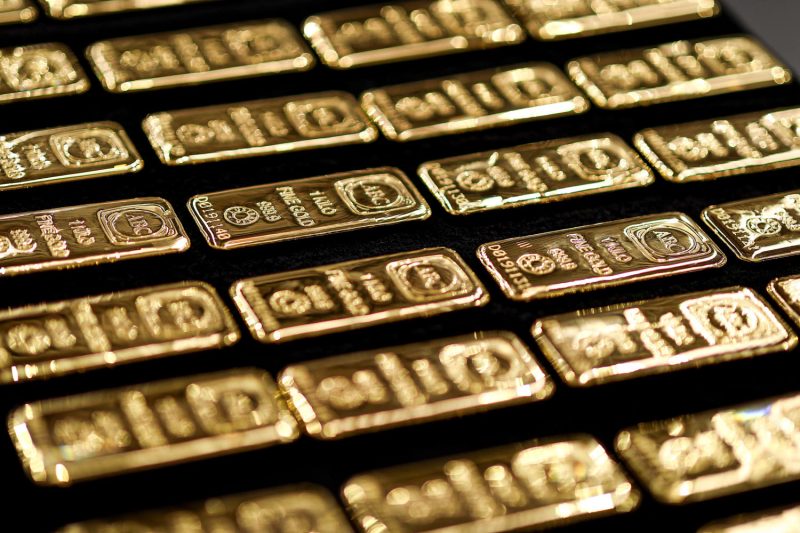Aside from ramen and sausages, South Korea’s convenience stores have a new popular item on the menu — gold bars.
The country’s largest convenience store chain, CU, has been collaborating with the Korea Minting and Security Printing Corporation (KOMSCO) to offer customers mini gold bars — and they’re selling like hot cakes.
A variety of finger-nail sized gold bars weighing between 0.1 gram and 1.87 gram have been up for sale at CU outlets since April. A 1.87 gram bar sells for 225,000 won ($165.76) and a 0.5 gram bar sells for 77,000 won.
Priced at 113,000 won each, 1 gram bars were sold out within two days, according to local news reports. The bars come with congratulatory messages, birthday wishes and even designs for personality types.
People in their 30s were most active in purchasing these gold bars, accounting for over 41% of the total sales since their launch, according to CU’s commerce phone app Pocket CU. Those in their 40s make up 35.2% of the sales, followed by people in their 50s at 15.6%. People in their 20s accounted for 6.8% of all sales.
Demand for bars and coins in South Korea rose 27% year on year to 5 tons in the first quarter of this year amid rising prices of the yellow metal, the World Gold Council said in a recent report. This was the sharpest quarterly increase in gold purchases in South Korea in more than two years, WGC noted.
Other convenience stores are also riding the bullion wave. In South Korea’s GS25 convenience store chain, customers can buy small gold wafers from vending machines.
“Typically in times of economic uncertainty when the local currency depreciates, the demand for gold physical jewelry will increase as domestic investors seek investment for safe haven assets,” said Heng Koon How, head of markets strategy, global economics and markets research at UOB.
According to the Korea Gold Exchange, prices of gold have surged to a record 456,000 won ($335.3) per 3.75 grams, or 0.13 ounce. Conversely, the Korean won has weakened over 5% against the greenback so far this year, currently trading at 1,358.7 against the dollar.
The WGC noted a recent trend of growing investment interest among a younger cohort in Asia, even as gold prices smash past record highs.
“Many Asian economies are dealing with inflation and financial uncertainty for the first time in a generation,” WGC Global Head of Central Banks Shaokai Fan told CNBC via email. “It makes sense that many younger investors are exploring gold as a way to diversify and protect their assets.”
Consumers in Asia’s largest economy, China, have has also been buying gold, with the collecting of 1 gram small beans in glass jars becoming a trend among the country’s youth. China is also leading consumer demand for bullion, with the country overtaking India in 2023 to become the world’s largest buyer of gold jewelry.
Separately, in the U.S. last year, retail warehouse giant Costco became a popular one-stop shop for one ounce gold bars priced at close to $1,900.







